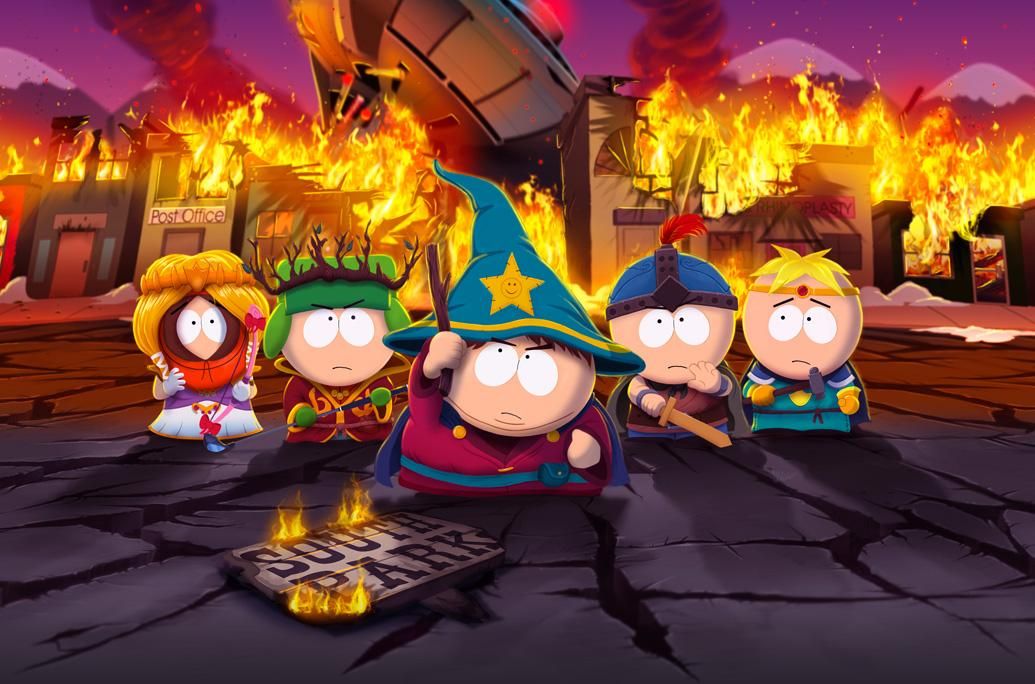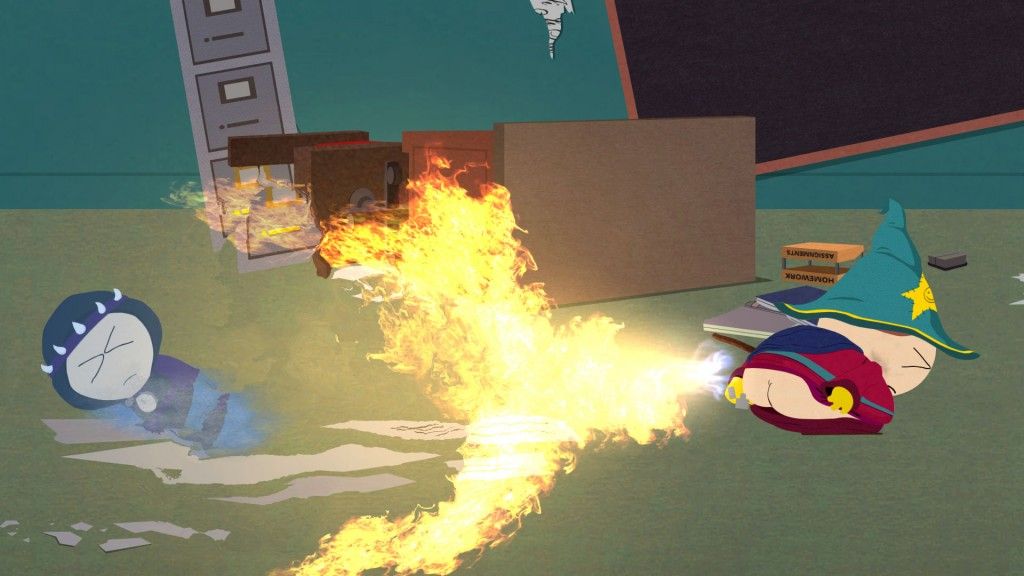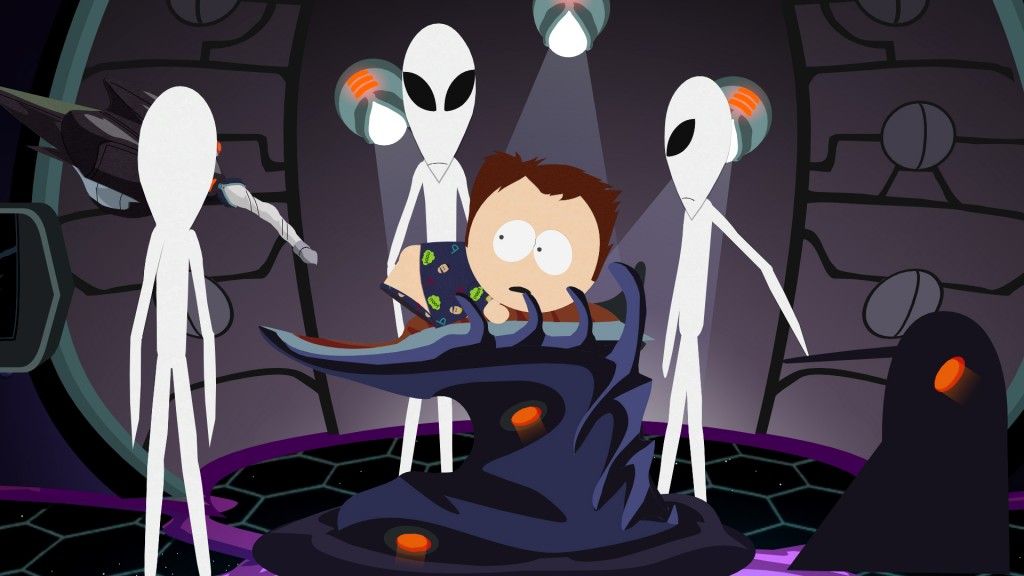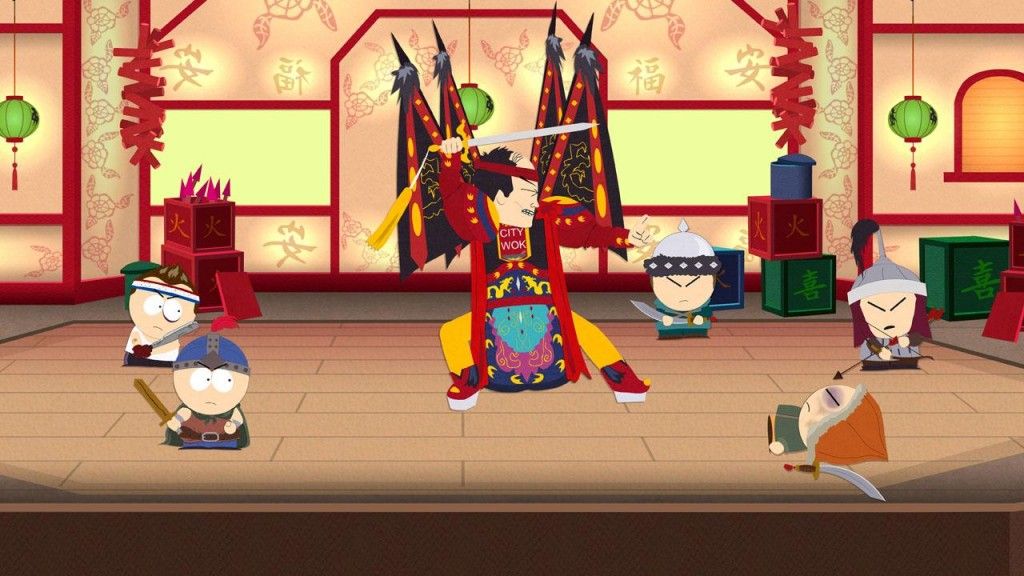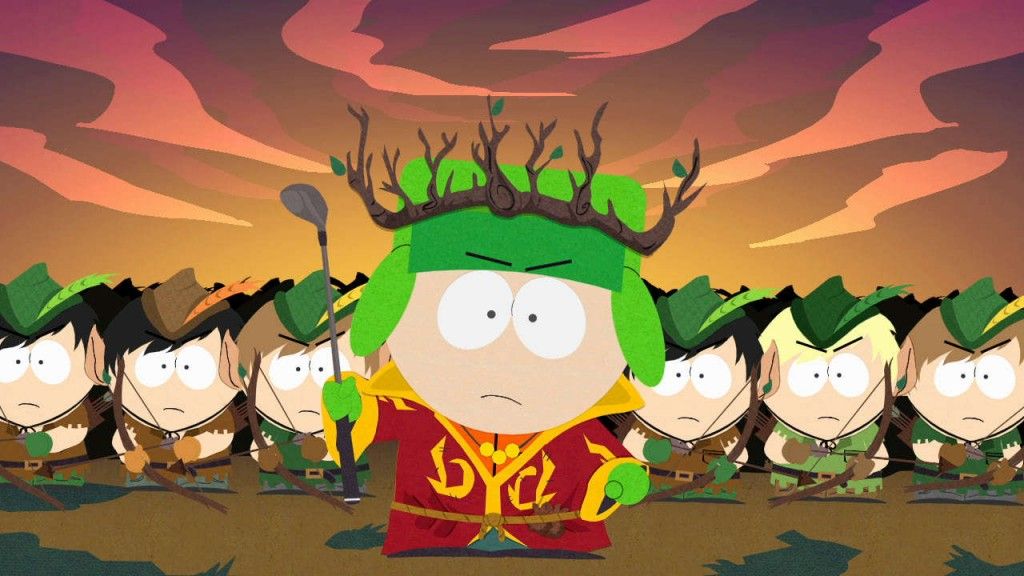Show Creators Matt Stone and Trey Parker debuted South Park in late 1997 and have weathered a harsh politically correct environment for nearly 20 seasons – the two have managed to keep up the show’s quality while pursuing other projects like Team America: World Police and The Book of Mormon. Unfortunately, the success of South Park on the television screen has never found its equivalent in the medium of gaming.
The earliest iteration of the franchise in gaming can be traced back to South Park, which was released for the Nintendo 64, PlayStation, and PC between 1998 and 1999. Four other games were released since then, with the most recent being published in 2012; none of them succeeded in bringing any sort of authenticity to the franchise’s representation in gaming.
The failures of South Park: The Stick of Truth’s predecessors were based in their inability to capture the essence of the show. The look, the feel, the writing – South Park meshes them all in a unique fidelity that is unmatched by any other comedic animation, and has never been realized in any of the games. Because of this, the game is so good that it has the power to nearly exorcise any memory that there were any other South Park games prior to its existence. Despite this, the game does not come close to perfection, or even greatness. As South Park, it is pure excellence, but as a video game, it has a tendency to fall flat on its face.
The story focuses on the struggle between Humans, led by Cartman and “Princess” Kenny, and Elves, led by Stan and Kyle, over the fabled Stick of Truth. Whomever controls it controls the universe. The protagonist of the game is you, the new kid in the neighborhood. Through your interactions with the four members of the main cast and the wealth of supporting characters you encounter, the story expectedly and delightfully goes off the rails more than once.
Subject matter such as abortion, Nazis, AIDS, pedophilia, rape, racism, BDSM, anti-Semitism, sodomy, and essentially every possible fecal reference imaginable is interspersed throughout the game beginning to end. There is no break in the humor, and this game is certainly not for the politically correct. Despite the seemingly overabundance of black humor, the story never gets in its own way, and instead moves ahead at a brisk pace, with perfection in its comedic timing and placement of jokes.
Despite the amount of characters and references utilized throughout the game, their presence is not haphazardly thrown in. There is a balance between the main story and side missions, and I was able to complete the former and a good chunk of the latter in the span of about 20-30 hours. Between their references to the show and their satirization of IPs like Dungeons & Dragons, the game still manages to feel short, and even limited. With so many characters and potential storylines to utilize, I anticipated a possible inability to finish the game before writing this review.
Full disclosure: I played as the Jew class, which falls somewhere between Monk and a Blue or Red Mage. Out of the four that are offered – Fighter, Mage, Thief, Jew – the latter was the only one that I had never experienced in any form in any of my previous RPGs. As you can see, the classes are very basic and there is a small selection – you are not dealing with Final Fantasy Tactics here. Throughout the game you are paired up with one character from the selection of Kyle, Stan, Cartman, Kenny, Butters, and Jimmy. All of the playable cast members fulfill their own unique role with abilities, special attacks, and PP moves – there is no weak link.
Many of the RPG elements of the game are in fact basic, and it is obvious from very early on that the game was designed for veterans and newcomers to the South Park franchise first, veterans of the RPG genre second, and newcomers to both third. Aspects of the game that are the most heavily influenced by RPG tropes included the ability to customize weapons and armor with enfeebling and/or beneficial attributes.
The gameplay itself is driven by a classic turn-based style of combat. Physical attacks can be enhanced by timing of the player to induce critical hits, and players can reduce damage by timing perfect blocks. Physical, PP, Summons, and Magic maneuvers make up the rest of combat.
It's in all but PP attacks that the game manages to shoot itself in the foot and more. There is certainly a fine line between a challenge and a game that stacks the odds unfairly against the player. In the case of defending against physical attacks, the timing needed to block them is difficult to discern because every enemy has a unique pattern, so you constantly have to adjust and adapt. In that case, the game presents a unique and welcome challenge.
However, it is all moot because enemies have extremely potent and strong attacks; failing to defend perfectly against them results in a wealth of damage dealt to your characters, and perfectly blocking them does not provide much of a difference unless every single block is perfect (enemies typically have double or triple attacks on top of attack buffs).
Because of this, the game devolves largely into a race to frustratingly block against attacks before following up the next turn with an item and a PP or physical attack move. This is further compounded by difficult boss fights (in which you are not allowed to use summons) and encounters with more than three enemies at a time. For example, a party of five Nazi rats (yeah, I know) were able to knock out one of my characters, even though I successfully blocked all of their attacks.
PP moves are the jewel of the game’s combat system, and can be described best as physical magic attacks, as they drain PP much like you would drain MP in any classic RPG title. They are useful as sources of burst damage or inflicting massive amounts of enfeebling effects. Players are only allowed to use them sparingly as the PP cost is high, and the player’s pool is small.
With the Jew class, I had access to a selection of abilities including Sling of David and Wrath of Egypt, among others, all of which never failed to make me howl with laughter every time I used them. Every job has a thematic move-set that accompanies them, and all of them are humorous, though I imagine most people will be partaking in the class I chose.
The magic of the game is the power of the fart. Despite the amount of attention the story places on this power and how it is used to overcome obstacles in the regular environment, it is essentially useless in combat. Augmented attacks and PP attacks do the job much better than magic, and I found myself not needing to use it once.
Smaller problems are sprinkled throughout the game’s map and user interface, which are otherwise unique in their presentation. Fast travel locations needed to get around South Park are not present on the map unless the player goes to one first, and there is no waypoint system. Within the user interface, it is not possible to sort one’s inventory, and you have to constantly tab into it to look at the map.
South Park: The Stick of Truth is the tale of two games. It is a ridiculously off-the-wall black comedy that works in every way and successfully captures the tone and essence of the show. Unfortunately, it is also a satirization of the RPG genre that manages to misfire in more than one aspect in its most basic approach, and ultimately feels unfinished and in dire need of a polish.

